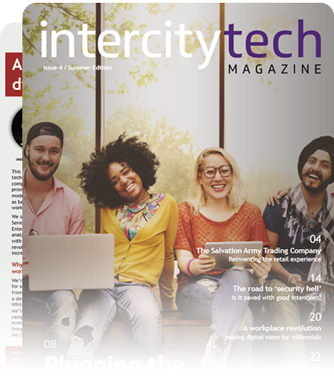Two important things happening right now that together have a powerful impact on business are the ‘Subscriber Economy’ and the ‘Gig Economy’.
The Subscriber Economy is the fast-growing trend towards paying monthly for a service instead
of paying in full upfront. Like your iPhone X contract. The Gig Economy means people working in temporary or part-time jobs that don’t provide traditional benefits like a pension or healthcare but deliver benefits around flexibility.
Consumer Buying Behaviour
This is changing and it is changing for good. It is happening in our work and in our personal lives. Think about how you used to watch a film. You probably reluctantly took a stroll to your local Blockbuster. Gone are the days when you would default to buying a DVD from HMV. If you’re like me and many others, your movie is downloaded or streamed on demand and your music is from a subscription service. It’s the same for cars (lease or PCP vs purchase) and even our shopping experiences (Amazon Subscribe and Save): the list goes on.
This behaviour impacts every size of business and every industry.
Relevance is critical. Any business that doesn’t stay relevant to their customers or relevant in their industry is dead in the water – you could become the next Blockbuster and be left out of business. How do you stay relevant? By embracing the opportunities of the digital age. For me, we are either (a) born digital, (b) transforming to digital or (c) dying out. Which are you?
In the past, businesses would find a market, create products, select the channel to market, find a customer and sell them a product. This would deliver cash up front, a happy salesperson and benefit to the P&L. The customer walked away and if they were lucky, would get a phone call a year later when they churned or appeared on an outbound campaign. This is the Old Game with Old Rules.
"How do you stay relevant? By embracing the opportunities of the digital age."
Today’s customer isn’t specific to one channel, they engage with multiple channels. They will not pay large sums up front, instead of expecting to pay a monthly amount that they deem reasonable. As a monthly subscriber, they are free to leave at any time. And they will.
Now, this does two things: first, it means you must focus on creating a bond between you and your customer – trust is the bedrock of everything. Secondly, it means constantly reinforcing that bond by repeatedly engaging with each customer and adding value to your relationship.
That’s right, value has a time limit. What had value at the time of the initial purchase does not necessarily retain that value for long, and certainly not forever. It is our responsibility to understand what the customer values today, tomorrow and in the future and then to meet or, if we can, exceed their expectations.
The other key thing here is effort – making it easy for your customers to choose to stay with you. Extensive research carried out by CEB revealed that whilst customer satisfaction is important, what matters most is customer loyalty.
Loyalty means that the customer stays with you. What drives loyalty? Effort. Specifically, low effort. In other words, if you build a relationship, earn each customer’s trust and consistently deliver value, whilst asking very little effort of them in return… you have a satisfied, loyal customer.
And The Gig Economy?
With customers increasingly wanting on-demand services with a great experience how does this marry up with the Gig Economy and the people in our business?
Temporary work ‘gigs’ can be controversial, depending on your perspective, but it is a fact the number of temporary or part-time workers is increasing. A US market report by Intuit predicted that 40% of workers would be contractors by 2020...
[subscribe-form]
So What Do We Do?
Think differently. Work for our customer, rather than just sell to them. Embrace a cultural shift across the business where everybody is working towards delivering:
- great outcomes and positive experiences from engaging with us
- services that are available on demand, not when we’re ready to sell them
- mobility – this is critical – available anywhere
- repeating value through services, support or advice
To do this means thinking about meeting customer needs, not selling products. It means building a relationship, not one-off sales. It means pricing the value of the service to the customer, not a cost per unit sold. This is the New Game and New Rules.
Bringing It Together
In a world where the people in our business are increasingly transient and our customers want instant gratification from the best services, providing subscription-based services is inevitable. Using the cloud to provide the very latest technology and only paying for what you need, when you need it, is rapidly becoming the best choice for businesses and customers alike.
For a business, buying computers, servers and software in a capex model puts pressure on cash flow and leaves you with depreciating assets. Using cloud infrastructure and software means paying for what you need, when you need it and turns IT infrastructure into a more manageable opex model.
This same principle is also the basis for what we provide for our customers. Selling and walking away is the Old Game, Old Rules. Building trust and developing a mutually beneficial relationship is the New Game and providing customers with what they need and removing what they don’t are the New Rules. Which game are you playing?
 |
View similar articles in our 4th Edition of Intercity Tech Plugging the skills-gap, Is it time to stop circling the drain? |
Subscribe to our newsletter
YOU MAY ALSO BE INTERESTED IN:


